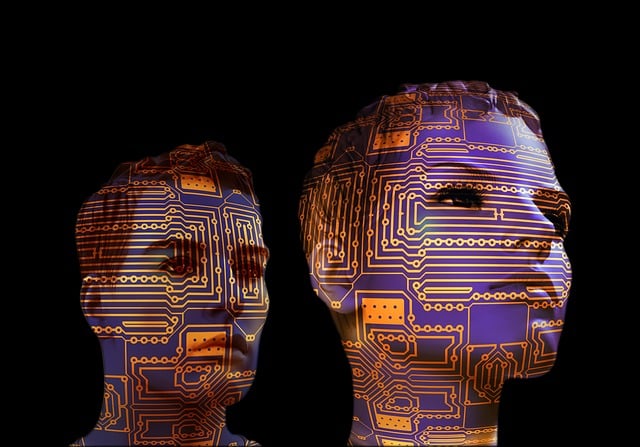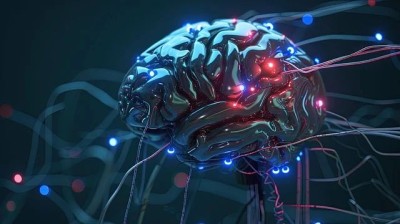The Ethical Dilemmas of AI and Machine Learning

In recent years, Artificial Intelligence (AI) and Machine Learning (ML) have evolved from futuristic concepts into transformative forces that are reshaping industries, streamlining everyday tasks, and redefining how we interact with technology. From voice assistants and self-driving cars to healthcare diagnostics and predictive algorithms in finance, AI has embedded itself deeply in our lives. However, with great power comes great responsibility—and this rapid rise of intelligent systems also brings a host of ethical dilemmas that demand our attention.
1. Bias in Algorithms
One of the most pressing ethical issues in AI is algorithmic bias. Machine learning systems learn from data, and if that data reflects human biases—whether racial, gender-based, or economic—the system will adopt and potentially amplify them.
A now-famous case occurred with a hiring tool developed by Amazon, which was found to be biased against female candidates. The AI was trained on resumes submitted over a 10-year period, most of which came from men, leading the system to downgrade resumes that included the word "women’s."
Bias in AI doesn't just result in unfair hiring practices—it can also affect:
- Loan approvals
- Predictive policing
- Healthcare decisions
- Facial recognition technologies
To combat this, researchers are working on fairness-aware algorithms, but the question remains: can machines ever be truly neutral if the world they learn from isn’t?
2. Lack of Transparency (The Black Box Problem)
AI systems, especially those based on deep learning, often operate as "black boxes"—meaning it’s difficult to understand how they arrive at their decisions. This lack of transparency raises significant ethical concerns.
Imagine a patient denied life-saving treatment based on an AI prediction, or a defendant receiving a harsher sentence because of a risk-assessment algorithm. In both cases, the lack of an explanation for the AI's decision undermines trust and accountability.
Efforts such as Explainable AI (XAI) are trying to solve this, ensuring that AI decisions can be interpreted and justified. But for now, many systems remain opaque.
3. Privacy Concerns
AI thrives on data. From social media interactions to health records and purchasing habits, massive datasets feed machine learning models. But where do we draw the line between convenience and intrusion?
Facial recognition software, used in public surveillance, has sparked outrage in many parts of the world. In 2019, San Francisco became the first major U.S. city to ban the use of facial recognition by government agencies, citing civil liberties and privacy violations.
Further issues include:
- Unauthorized data harvesting
- Lack of informed consent
- Data misuse or leakage
With GDPR in Europe and evolving privacy laws elsewhere, the ethical demand for responsible data use is becoming a legal one too.
4. Job Displacement and Economic Inequality
Automation powered by AI is forecasted to displace millions of jobs. According to the World Economic Forum’s Future of Jobs Report (2023), AI could displace 85 million jobs by 2025, while also creating 97 million new roles.
While this might sound like a fair trade, the reality is more complex. High-skill workers are more likely to benefit from the AI boom, while low-skill workers face the risk of redundancy. This deepens the digital divide and may worsen economic inequality unless strong upskilling and re-skilling programs are implemented.
Ethical tech companies and governments have a responsibility to ensure that technological advancement does not come at the cost of widespread unemployment or inequality.
5. Autonomy and Control
Should AI be allowed to make decisions that affect human lives? This question becomes especially crucial in contexts like:
- Autonomous weapons systems
- Self-driving vehicles
- Healthcare diagnostics
For example, who is responsible if a self-driving car causes an accident? The programmer? The manufacturer? The user? These are no longer hypothetical scenarios—Tesla’s Autopilot system and similar technologies are already raising legal and ethical challenges.
Similarly, autonomous drones used in warfare may eventually decide when and whom to strike without human intervention, prompting widespread concern about the ethics of machines making life-and-death decisions.
6. Deepfakes and Misinformation
AI-generated content is now capable of mimicking human voices and creating incredibly realistic images and videos—also known as deepfakes. While they have creative and entertainment potential, they also raise significant ethical concerns, including:
- Political misinformation
- Fake news propagation
- Reputational damage
Cybercrime
With elections around the world being influenced by digital campaigns, the ability of AI to create convincing fake content poses a threat to democracy itself.
7. Moral Agency: Can AI Be Held Accountable?
Can a machine be held morally accountable for its actions? The answer is—currently—no. AI has no consciousness or sense of right and wrong. That means the responsibility lies entirely with humans—those who design, train, deploy, and regulate these systems.
Ethical frameworks like Asimov's Three Laws of Robotics provide fictional foundations, but the real world demands more robust ethical guidelines and governance models.
Navigating the Path Forward
So, what’s the solution? How do we enjoy the benefits of AI without sacrificing ethics?
- Ethical AI Development – Incorporate ethics into the design process from the start. Teams should be diverse, inclusive, and aware of potential biases.
- Transparency and Accountability – Encourage open-source models and explainable AI, especially in sensitive applications like healthcare and law enforcement.
- Policy and Regulation – Governments must develop clear regulations for the ethical use of AI. The EU’s AI Act is one of the first major steps toward this.
- Public Awareness – Educating people about the potential and pitfalls of AI is essential to foster informed engagement and public dialogue.
Final Thoughts
Artificial Intelligence and Machine Learning are not inherently good or evil—they’re tools. But like all powerful tools, their ethical implications depend on how we choose to use them. As we move into an AI-driven future, balancing innovation with responsibility is not just an option—it’s a necessity.
As users, developers, and policymakers, we all share the burden of guiding AI toward a future that respects human values, promotes equality, and safeguards our rights.
-1745570755.jpg)
Smart Living: Embracing Technology for a Better Tomorrow
-1745570753.jpg)
Connected World: The Role of Tech in Modern Living
-1745570758.jpg)
The Rise of Automation: What It Means for Work and Life

Using Social Media the Right Way: Tips for Kids and Teens





-1745569762.jpg)
-1745569762.jpg)
-1745569769.jpg)
-1745569771.jpg)